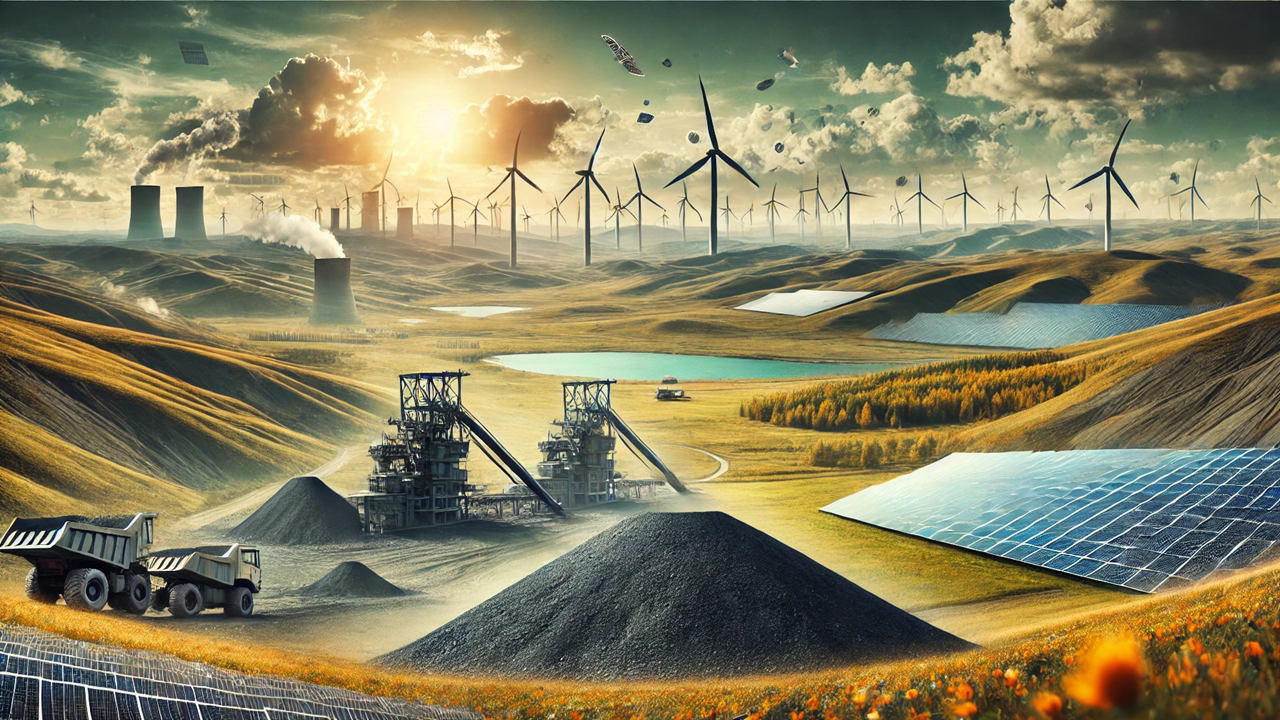Mongolia's Path to Sustainable Growth: World Bank Report Outlines Climate Risks and Transition Needs
The World Bank's "Mongolia Country Climate and Development Report" underscores Mongolia's urgent need to transition from coal dependency toward sustainable development. With climate-related risks such as extreme winters and economic pressures from coal reliance, the report advises diversification, green energy investments, and adaptive policy measures to foster resilience and support Mongolia's Vision 2050 goals.

The World Bank’s 2024 "Mongolia Country Climate and Development Report" is an urgent wake-up call for Mongolia to address growing climate risks and the economic repercussions of its dependence on coal. Mongolia, one of the world’s most carbon-intensive economies, faces unique vulnerabilities that demand a rapid and strategic shift toward sustainable development. The report advocates for economic diversification, enhanced infrastructure, and a green energy transition to support the nation’s Vision 2050 goals, aiming to steer Mongolia toward a low-carbon, climate-resilient future.
Climate Risks and Challenges to Development
Mongolia’s reliance on coal, primarily exported to China, has fueled economic growth but has also deepened the country's exposure to climate hazards. Mongolia’s extreme winters, known as dzuds, and increasing flood risks are amplified by climate change, affecting rural communities and the infrastructure of cities like Ulaanbaatar. To withstand these environmental pressures, the report underscores the necessity for resilient urban planning and robust infrastructure investments.
The extreme seasonal conditions and intensified climate risks make Mongolia particularly vulnerable, with frequent natural disasters posing threats to public health, food security, and economic stability. The World Bank report recommends immediate investments in climate-adaptive infrastructure to protect both urban and rural communities, emphasizing that these are not only environmental necessities but also economic imperatives for sustainable development.
Economic Vulnerabilities and the Push for Diversification
With mining—especially coal and copper—accounting for a substantial share of Mongolia’s GDP and government revenue, the report highlights the economic risks tied to this dependence. Global shifts toward a low-carbon economy threaten Mongolia’s coal export market, especially given China’s efforts to decarbonize. Mongolia’s heavy reliance on this single revenue stream creates economic vulnerability, making diversification crucial.
The World Bank recommends that Mongolia expand into sectors less susceptible to carbon restrictions and global market fluctuations, such as renewable energy, sustainable agriculture, and mineral mining for transition-critical minerals like copper and rare earth elements. This diversification strategy is critical to cushioning Mongolia against market shocks and establishing a more stable economic future.
Agriculture and Water Management: Building Climate Resilience
Mongolia’s agricultural sector, largely focused on livestock, suffers from low productivity and high exposure to climate extremes, which in turn amplifies the sector's carbon footprint. The report suggests that Mongolia adopt sustainable agricultural practices, enhance land use efficiency, and manage water resources more effectively. Given that groundwater supplies most of the country’s drinking water, sustainable management of this resource is vital as climate change intensifies demand and strains supply.
The report also calls for better livestock management to prevent overgrazing and rangeland degradation, which are linked to increasing greenhouse gas emissions. By adopting efficient, climate-smart practices, Mongolia can mitigate environmental impacts while bolstering the resilience of its agricultural systems, ultimately ensuring food security and economic stability.
Transitioning Mongolia’s Energy Sector
The report points out that Mongolia’s energy system is highly dependent on coal, particularly for heating and electricity. This dependency has contributed to severe air pollution, with significant health impacts and a high mortality rate from pollution-related illnesses. Decarbonizing Mongolia’s energy sector is critical but challenging. The World Bank advocates for investment in renewable energy, particularly in Mongolia's potential-rich wind and solar sectors, alongside infrastructure upgrades to facilitate a shift away from coal.
Incorporating renewable energy sources is essential to reduce Mongolia’s greenhouse gas emissions and improve public health. The report also highlights the need to upgrade aging infrastructure and expand access to cleaner energy alternatives, as well as to phase out inefficient coal-based heating systems. This transition not only aligns with Mongolia's climate goals but also addresses air quality and health concerns.
Policy and Investment Frameworks for Sustainable Growth
Effective governance, targeted subsidies, and strong incentives for private investment are essential to propel Mongolia towards its Vision 2050 targets. The report advises implementing clear, supportive policies and regulatory frameworks to attract green investments, as well as encouraging international partnerships that could ease Mongolia's transition to a low-carbon economy.
Additionally, the report suggests that Mongolia’s climate goals will require a “just transition” for coal-sector workers, many of whom are at risk of displacement as coal dependency wanes. Policies that provide retraining, support for new employment opportunities, and regional development programs are key to ensuring that this transition does not leave vulnerable populations behind.
Financing Mongolia’s Green Future
The World Bank estimates that significant financial resources will be needed to achieve a sustainable development path in Mongolia. Investments in renewable energy infrastructure, climate-resilient agriculture, and sustainable water management are vital. To finance this green transition, the report recommends leveraging public-private partnerships, international aid, and innovative financing mechanisms that can help Mongolia overcome its dependency on fossil fuels and build a sustainable, resilient economy.
A Call to Action
The "Mongolia Country Climate and Development Report" by the World Bank is both a roadmap and a call to action. The transition toward a resilient, diversified economy and sustainable growth is not only possible but imperative for Mongolia. By prioritizing climate resilience, investing in green energy, and fostering inclusive policies, Mongolia can set a global example in sustainable development. This path will require a balance of local adaptation and international collaboration, but the rewards—a stable economy, healthier communities, and a sustainable future—are well worth the effort.
- FIRST PUBLISHED IN:
- Devdiscourse










